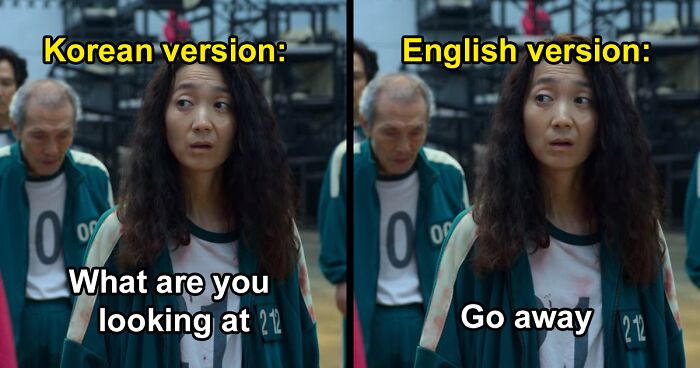
‘Translation Was So Bad’: Korean American Breaks Down The Scenes From “Squid Game” To Show How Inaccurate The English Version Is
InterviewIf you have also been glued to the screen for much of the last month, the chances are you were watching Squid Game, aka currently the No 1 show on Netflix in 90 countries.
But not everyone is happy with the English version of this massive global TV phenomenon. It turns out, an increasing number of Korean speakers are finding the translation very poor, to say the least.
One of them, social media content creator and podcaster Youngmi Mayer, tweeted “Not to sound snobby but I’m fluent in Korean and I watched Squid Game with English subtitles and if you don’t understand Korean you didn’t really watch the same show. Translation was so bad,” she said and added that “the dialogue was written so well and zero of it was preserved.”
So now, in a series of illuminating TikTok videos, Youngmi made a scene breakdown where she pointed out particularly inaccurate and flawed translations. It turns out, the English-speaking world is missing a whole lot of story!
Image credits: ymmayer
Image credits: ymmayer
ok i made this really fast so it’s not very good but these are the small examples i could find in ten mins pic.twitter.com/5kIsrlWDjq
— youngmi mayer (@ymmayer) September 30, 2021
Image credits: ymmayer
If you haven’t heard of the show Squid Game on Netflix, the chances are you’ve been hiding somewhere in a bunker for the past few weeks. Because the new Korean TV series has taken our screens by storm, topping out at 1st place on Netflix in 90 countries since it premiered on September 17.
The violent dystopian drama stars Lee Jung-jae, Park Hae-soo, Wi Ha-joon and Jung Ho-yeon as a group of outcasts lured by a mysterious organization into playing children’s games for a cash prize—with deadly high stakes. One of the lead characters, Jung Ho-yeon, who plays Sae-byeok, number 067 in the drama, was made Louis Vuitton’s international ambassador as her Instagram following soared from 400k to a whopping 17M.
What’s incredible about this new show dubbed a “phenomenon” is that it created an instant global craze with people shamelessly binging nine hours of episodes, or playing it on the digital game platform Roblox. Moreover, fans went crazy for the show’s signature green tracksuits and white Vans slip-ons. According to Sole Supplier data, the sales for them are up 7,800%.
Moreover, it’s the first time a Korean drama has ever been at the top of the US charts. Moreover, a whopping 95% of the viewers are outside Korea, debunking a previous belief that the younger generation can’t be bothered to read subtitles.
Korean:
English subtitle:
It turns out that with Netflix executive Minyoung Kim, the entertainment platform started a new content strategy by committing to spending over a half a billion dollars on Korean content in 2021 alone. Many analysts now believe Netflix’s strong lead in Korean entertainment to be one of the company’s key advantages.
In an interview with The Hollywood Reporter, Kim said that “We’ve always believed that the most locally authentic shows will travel best, so having a show that’s about really authentic Korean games and characters become really big not only in Korea but also globally—it’s such an exciting moment for us.”
Korean:
English subtitle:
Kim believes that part of Squid Game’s success is the appeal of the genre itself. “Number one, the genre itself is something that has global appeal. The director also wanted to make sure that even if you don’t already know those very Korean children’s games, the barrier of entry would be low and you could still easily enjoy it. He put a lot of focus into making sure the rules of the games he chose were very simple—and I think this simplicity is a big element of the international success.”
Moreover, “We also believe content that’s able to generate conversation has the best chance of getting really big. And Squid Game has a lot of those memorable, meme-able moments that people can play around with, and which drive conversation,” Kim explained.
Korean:
English subtitle:
Bored Panda reached out to Euijin Seo, Korean language and content creator on TikTok and Instagram living in South Korea. Euijin runs Good Job Korean online Korean course for beginners, so if you want to watch Squid Game in its original language without missing any details and references, be sure to check out his page!
When asked what was Euijin’s first impression after watching the first episode of Squid Game, he said he was “pretty shocked with the red light green light game.” He added: “The game that I used to play in my childhood turned into a death game in the show.”
Moreover, “One interesting fact is we also used ‘die’ (죽다 [jukda]) in Korean when someone failed in the game. But this became an actual death in the show,” Eujin explained and added: “Killing people with a gun comes as a shock to me as well. Guns in Korea are strictly restricted. So you barely see K-drama with guns. But I think Squid Game is one of the most gun-heavy shows.”
Image credits: ymmayer
Image credits: ymmayer
Image credits: ymmayer
When it comes to the English version of Squid Game, Euijin said that he didn’t pay great attention to the subtitles, “because I am a native Korean.” However, he still watched the show with English subtitles “anyway for some reason,” and found some differences.
“One example is one of Han Minyeo’s words translated into ‘I’m not a genius, but I still got it worked out’ from one of the episodes. But it is actually ‘내가 공부를 안 해서 그렇지 머리는 장난 아니라니까!’ which is literally ‘I am very smart, I just never got a chance to study.’ This translation was totally different.”
Euijin believes that if this part was translated literally, “people might be confused like ‘why does she start talking about studying?’” He explained that this line reflects Korean culture. “Koreans tend to say ‘He is good at studying (schooling)’ as the meaning of ‘He is smart,’ so if you get a bad score from the school, that means you are not smart.”
“So Minyeo’s line became one of the typical words (or excuses) that undereducated people make in Korea,” Euijin said and added that “I guess it is impossible to explain all this background in the translation.”
@jin_koreannerdy@unkn0wnhum4n 님에게 회신 anyone wanna join this game? 🦑😏 #squidgame#learningkorean♬ 오리지널 사운드 – JinKorean
Image credits: jin_koreannerdy
Euijin pointed out more flaws in the English version of Squid Game on his Tik Tok. For example, in episode 1, the characters played “red light, green light” from hell, which refers to a game many American children grew up playing in schools (except the violence). However, it’s actually called “mugunghwa kkoci pieot seumnida” in Korean. He explained that “mugunghwa” is the Korean national flower, and in the Korean version of the game, the rules were different. “Every time the flower bloomed, you gotta freeze”: this is what it meant in Korean.
According to Euijin, non-Koreans have also missed a reference in the scene where Sang-woo first comes back from the games and he soaks in the bathtub with his clothes on. “There is something beside him making smoke,” he said and added that: “Many non-Koreans didn’t notice that Sang-woo was about to kill himself. This is one of the well-known suicide methods in Korea — by smoking briquettes.”
Another inconsistency that Euijin noticed was the fact “this Korean word 오빠 (oppa) has been translated as ‘babe’ in the English subtitle. But actually, oppa is a title that girls use to call men who are older than them. So Duksu asked Minyeo if it is right to call him oppa for Minyeo. When Minyeo keeps calling him oppa, it implies Duksu is older than her. And Duksu doubted her age, and then he asked her ‘It is right to call me oppa for you?’ I liked this scene very much. However, this dialogue is translated in a totally different way, and oppa became ‘babe.’” Here is the video link to the scene (1:50) that Euijin is talking about.
According to Euijin, many inconsistencies and inaccuracies in the English translation of Squid Game have to do with the whole Korean culture. “I want to remind people that Korea is a homogeneous country. Plus, the territory is small. Koreans are not as diverse as other countries and share a very deep culture. There are tons of inside jokes, idioms, nuance, intonation, and expressions that only Koreans possibly understand.”
Moreover, “there are not interchangeable words in English and it would have been nonsense translations and distracting viewers’ flow if the dialogue were directly translated,” he explained. Having said that, Euijin believes that even though the English viewers do not miss the overall message, they still miss some jokes or nuances from the dialogue. “This might have affected their understanding of each character!”
“I am so happy about its success as a Korean creator. I hope people get to have an interest in the Korean language and culture through it so that they can enjoy K-contents more,” Euijin concluded.
More people joined the discussion to point out inconsistencies between Korean and English versions of Squid Game
Image credits: alexisashin
Image credits: worldpoop
Image credits: ADeVonJohnson
Image credits: ustadchen
Image credits: Jayeamber1
Image credits: 26JinX
Image credits: CassRudolph
Image credits: harveythepig
268Kviews
Share on FacebookI am fluent in Korean, and I do video game localisation (which is translation for the most part), and let me tell you. All these people want a word-to-word literal translation, but that's not how it works. When it comes to creative content, it's translation+adaptation, in other words -> localisation. To make the product close to the audiences, in a way they can truly understand it, not only the language, but also the emotions, you need to adapt for the target region. This is also mostly why American and British sometimes need to translate each other's contents, not because they don't speak the same type of English, but because of cultural differences. Once the content gets its way into your heart, you can go and explore it further and find out about these differences, and that should be regarded as a personal little treasure, and if you're willing to share that knowledge, that's awesome. But here we're talking about accusations of a profession they do not understand. (Cont.)
(Cont.) It's cool that they're spreading the knowledge about the Korean culture, it truly is, but these things can be done without the "I'm better than you" kind of attitude, and the pooping on people's work. That last part of the original tweet was really uncalled for. She would've said the same for the English versions of our games without realising our English language team mostly has completely Korean translators whose work gets revised by native speakers of English.
Load More Replies...Part of my job is creating subtitles and closed captions for TV shows and movies. It's a lot more complex than you would imagine. First of all, the dubbing. That is the most difficult, because the goal is not to get an exact translation, so much as matching the translated words to the mouth movements of the actors. Obviously, that really limits what you can put on screen. For the subtitles, you have a limited number of characters that you can portray on screen at any one time, and because of the average reading speed of viewers, you can't have them appearing too quickly one after the other. So subtitlers have to distill language down to the shortest basics possible, with fewer characters than a Tweet. It's really, really hard.
"many non Koreans didn't realise he was about to kill himself". What do they mean? It was super obvious!
Yeah I reckon! If you didn’t get that then it’s not because of the subtitles, there was no dialogue in that scene anyway!!
Load More Replies...Off topic, but squid game is an incredible show and I recommend it to anyone who doesn't mind blood and gore! It has an interesting storyline and really reveals the human in everyone. Highly reccomended~
I was a medical interpreter for decades and it was difficult and absolutely undervalued. The nuances in language are almost untranslateable since language is intrinsically linked with culture. One elderly patient told me his mother died of susto, literally a fright, which is culturally acceptable way of dying and could technically mean a heart attack or a stroke. I tried to explain it to the anesthesiologist who was completely disinterested and didn't care to delve into it. It may not have been clinically important but it showed me how little most staff valued precise communication.
Ok, yes the subtitles aren't that accurate, but .... Korean translations of English movies aren't that accurate either. The Korean censors really chop up movies too. First watched Pulp Fiction in Korea, it was so censored it made no sense what so ever, Bogie Nights was shredded too.
isnt that so the english dub matches the lips better? i haven't seen the show but its the usual reason and it does make sense
While there can be several cases where a more accurate translation could be done, this is a totally normal thing and it happens in ANY movie with ANY language. What the person complaining about the dubbing is totally missing is that movies are very rarely translated directly and this is because of several reasons, one is to have a better lip sync, the other is that some things can't simply be directly translated into another language because they could make little sense or be less clear in another culture. Doing straight translation is an easy task, what is REALLY difficult is doing a good adaptation, yes because movies are always adapted and that's normal, that's a pretty big and basic concept that the person complaining is totally missing and it's also the reason why if you have a good understanding of the original language you should always try to watch movies in their original language. Adaptation can never be a 1:1 literal translation. P.S. The suicide scene was pretty clear BTW.
I am fluent in Korean, and I do video game localisation (which is translation for the most part), and let me tell you. All these people want a word-to-word literal translation, but that's not how it works. When it comes to creative content, it's translation+adaptation, in other words -> localisation. To make the product close to the audiences, in a way they can truly understand it, not only the language, but also the emotions, you need to adapt for the target region. This is also mostly why American and British sometimes need to translate each other's contents, not because they don't speak the same type of English, but because of cultural differences. Once the content gets its way into your heart, you can go and explore it further and find out about these differences, and that should be regarded as a personal little treasure, and if you're willing to share that knowledge, that's awesome. But here we're talking about accusations of a profession they do not understand. (Cont.)
(Cont.) It's cool that they're spreading the knowledge about the Korean culture, it truly is, but these things can be done without the "I'm better than you" kind of attitude, and the pooping on people's work. That last part of the original tweet was really uncalled for. She would've said the same for the English versions of our games without realising our English language team mostly has completely Korean translators whose work gets revised by native speakers of English.
Load More Replies...Part of my job is creating subtitles and closed captions for TV shows and movies. It's a lot more complex than you would imagine. First of all, the dubbing. That is the most difficult, because the goal is not to get an exact translation, so much as matching the translated words to the mouth movements of the actors. Obviously, that really limits what you can put on screen. For the subtitles, you have a limited number of characters that you can portray on screen at any one time, and because of the average reading speed of viewers, you can't have them appearing too quickly one after the other. So subtitlers have to distill language down to the shortest basics possible, with fewer characters than a Tweet. It's really, really hard.
"many non Koreans didn't realise he was about to kill himself". What do they mean? It was super obvious!
Yeah I reckon! If you didn’t get that then it’s not because of the subtitles, there was no dialogue in that scene anyway!!
Load More Replies...Off topic, but squid game is an incredible show and I recommend it to anyone who doesn't mind blood and gore! It has an interesting storyline and really reveals the human in everyone. Highly reccomended~
I was a medical interpreter for decades and it was difficult and absolutely undervalued. The nuances in language are almost untranslateable since language is intrinsically linked with culture. One elderly patient told me his mother died of susto, literally a fright, which is culturally acceptable way of dying and could technically mean a heart attack or a stroke. I tried to explain it to the anesthesiologist who was completely disinterested and didn't care to delve into it. It may not have been clinically important but it showed me how little most staff valued precise communication.
Ok, yes the subtitles aren't that accurate, but .... Korean translations of English movies aren't that accurate either. The Korean censors really chop up movies too. First watched Pulp Fiction in Korea, it was so censored it made no sense what so ever, Bogie Nights was shredded too.
isnt that so the english dub matches the lips better? i haven't seen the show but its the usual reason and it does make sense
While there can be several cases where a more accurate translation could be done, this is a totally normal thing and it happens in ANY movie with ANY language. What the person complaining about the dubbing is totally missing is that movies are very rarely translated directly and this is because of several reasons, one is to have a better lip sync, the other is that some things can't simply be directly translated into another language because they could make little sense or be less clear in another culture. Doing straight translation is an easy task, what is REALLY difficult is doing a good adaptation, yes because movies are always adapted and that's normal, that's a pretty big and basic concept that the person complaining is totally missing and it's also the reason why if you have a good understanding of the original language you should always try to watch movies in their original language. Adaptation can never be a 1:1 literal translation. P.S. The suicide scene was pretty clear BTW.

 Dark Mode
Dark Mode 

 No fees, cancel anytime
No fees, cancel anytime 






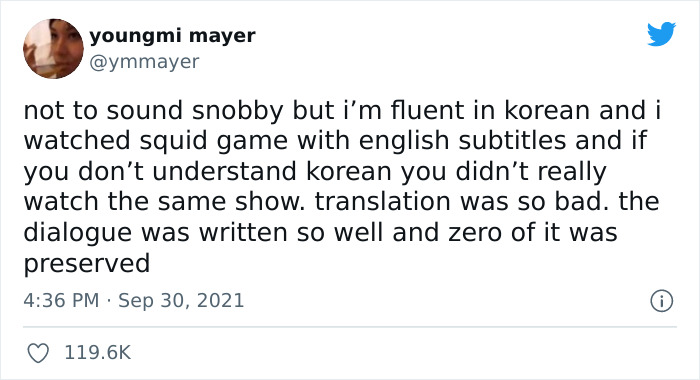
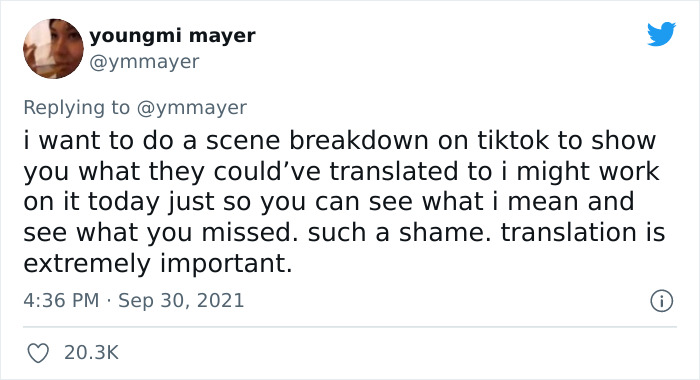
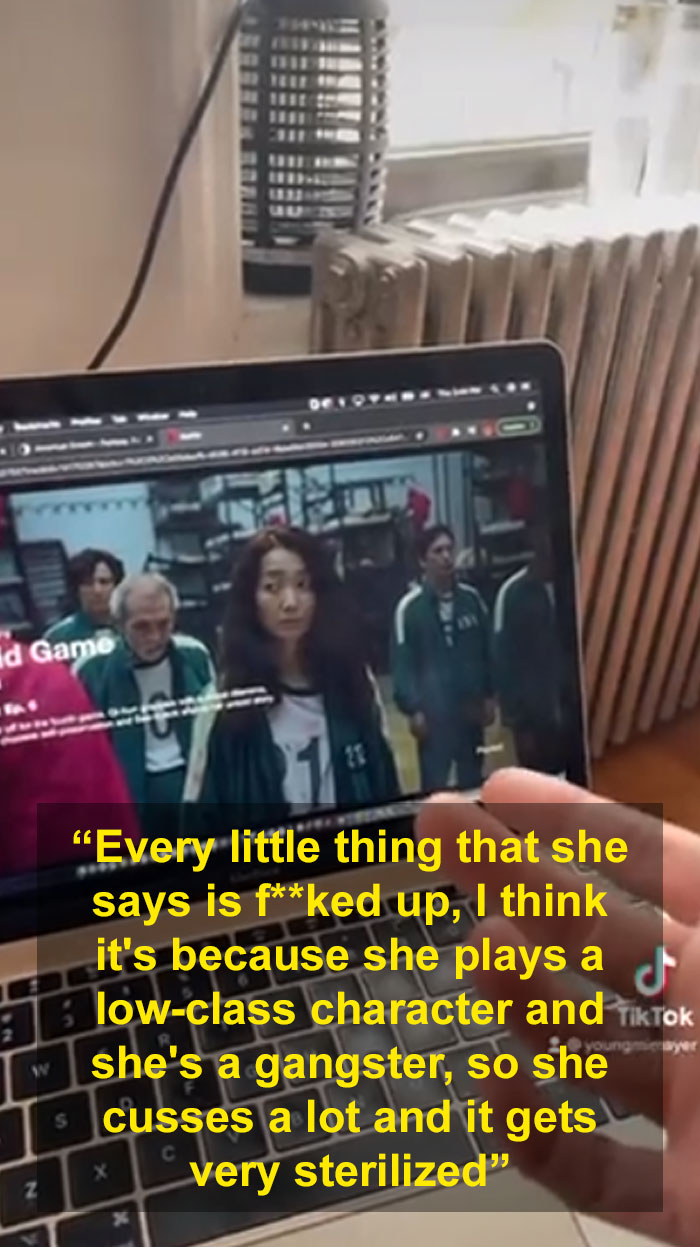

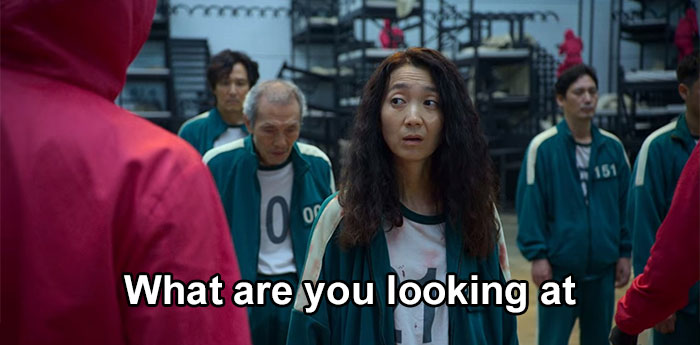
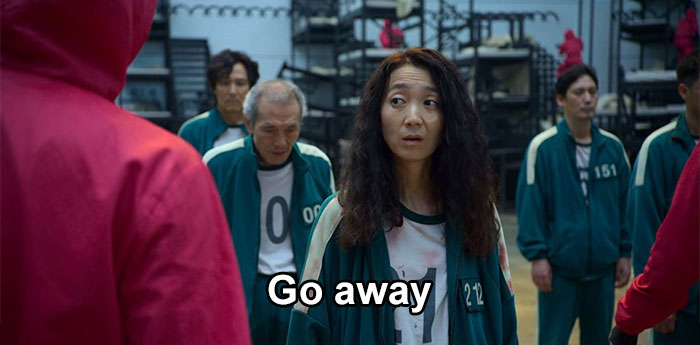

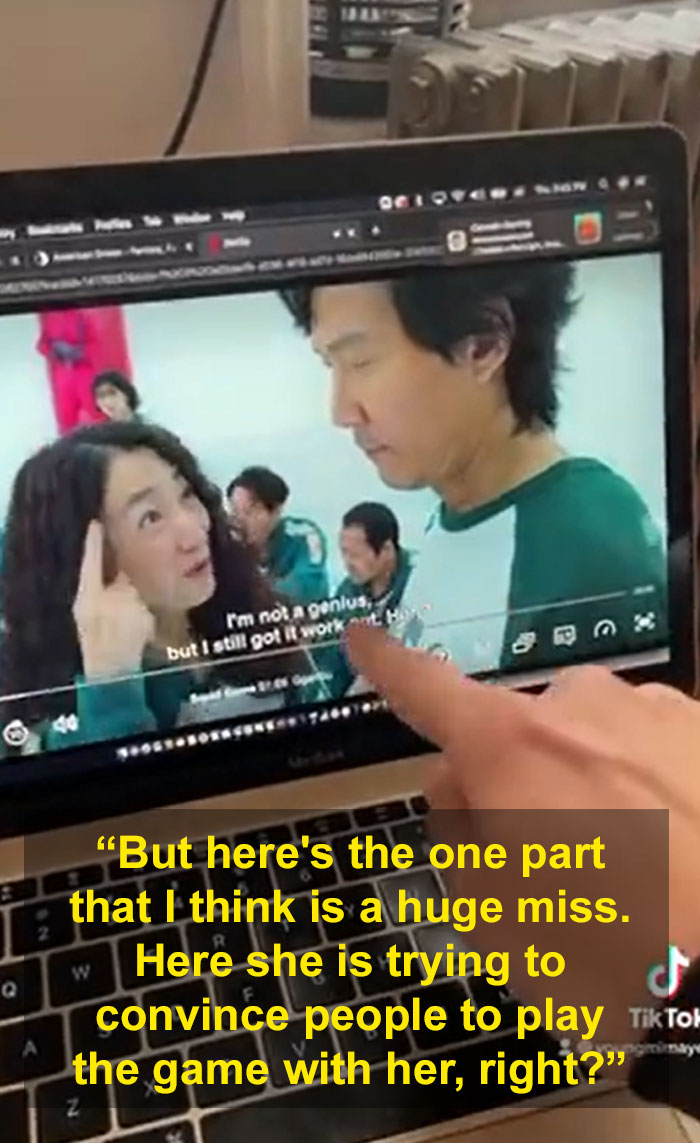
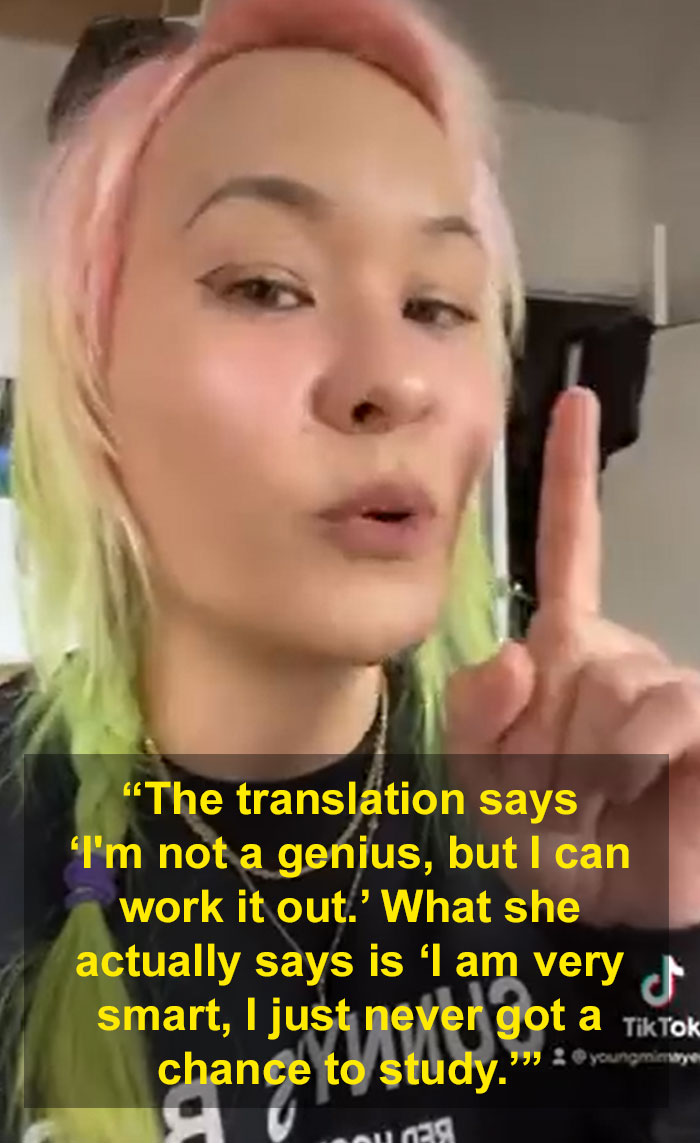
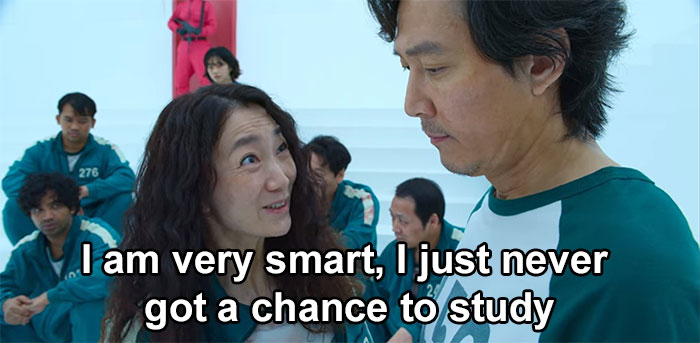
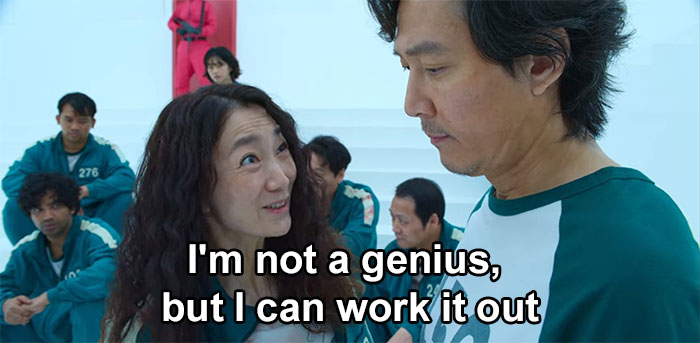
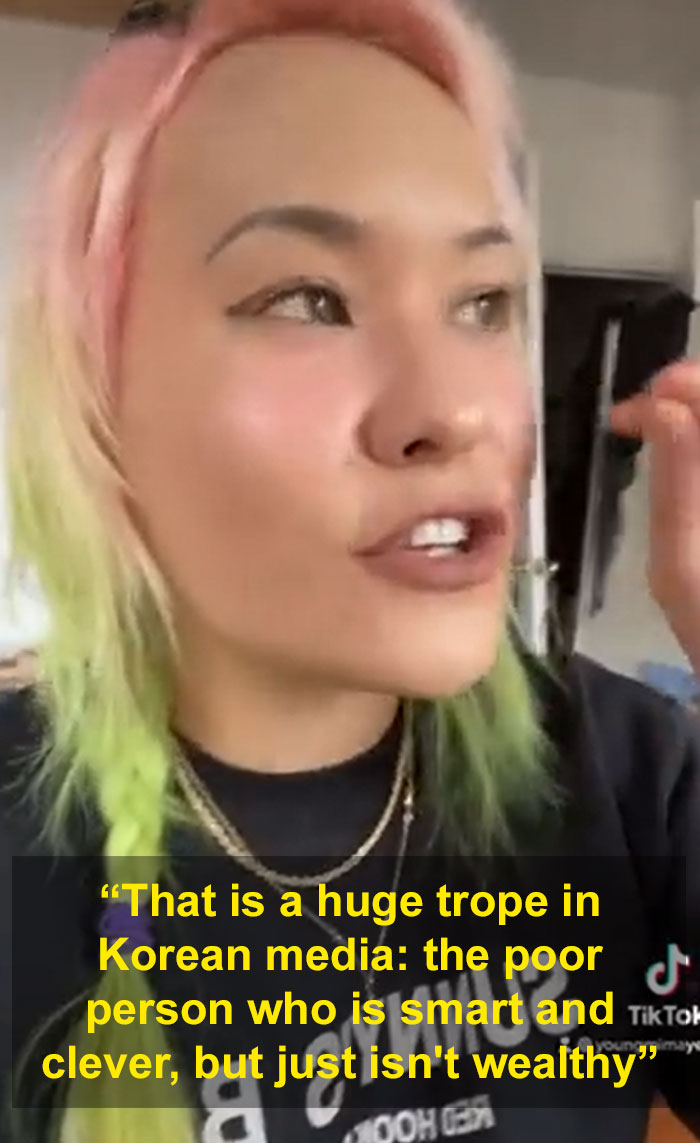
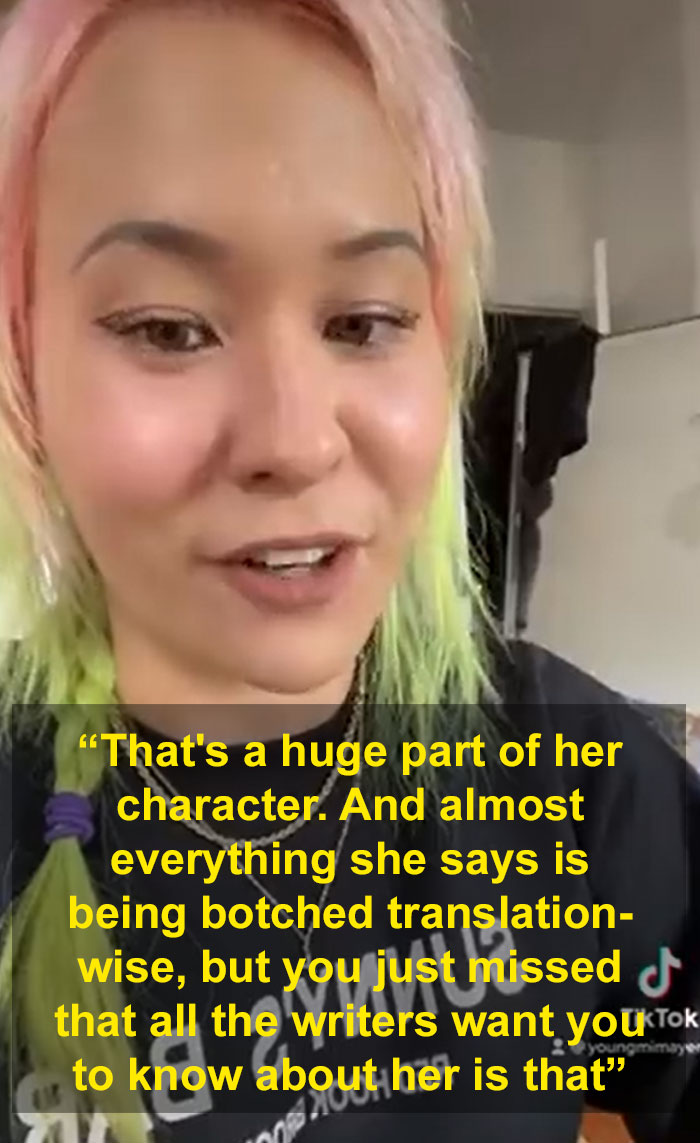
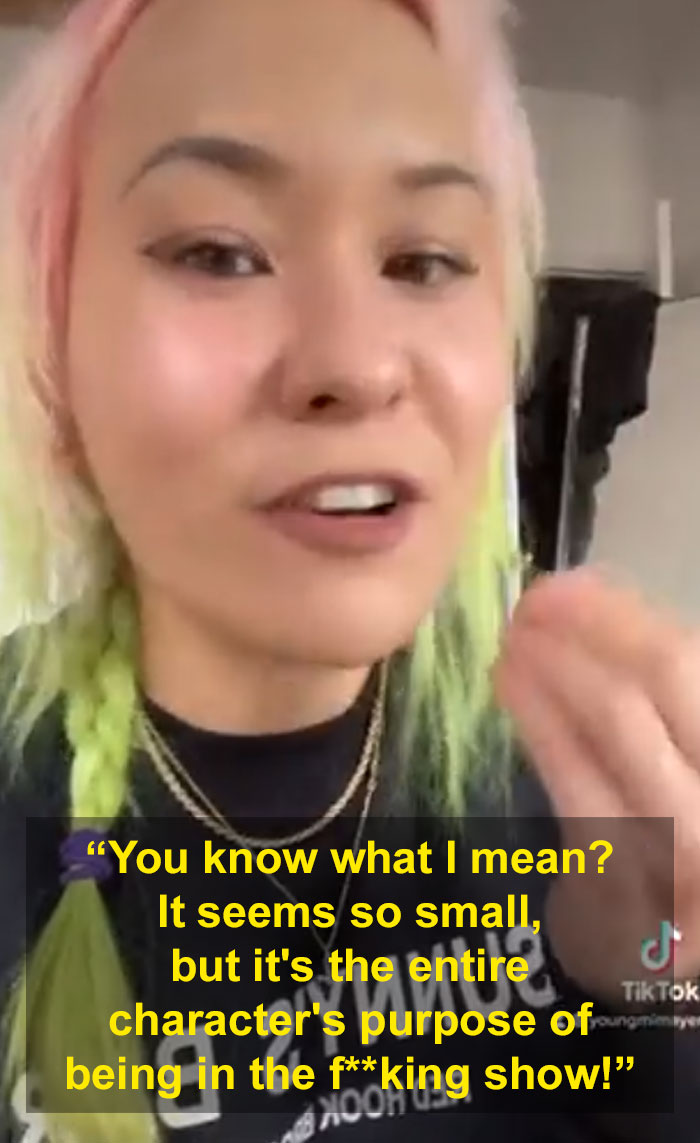
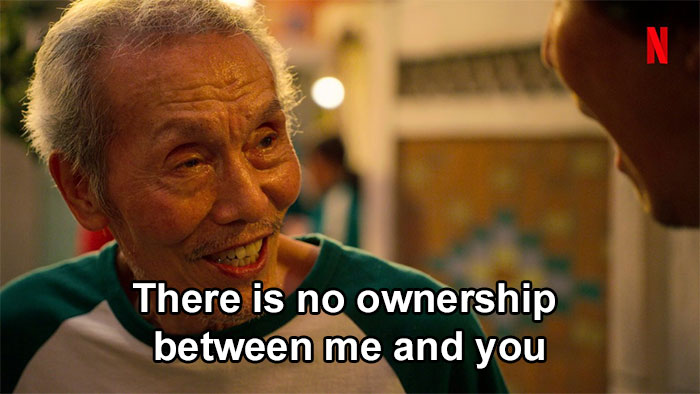
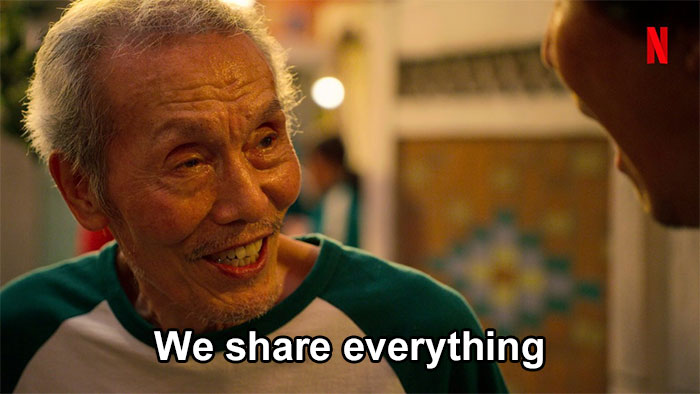
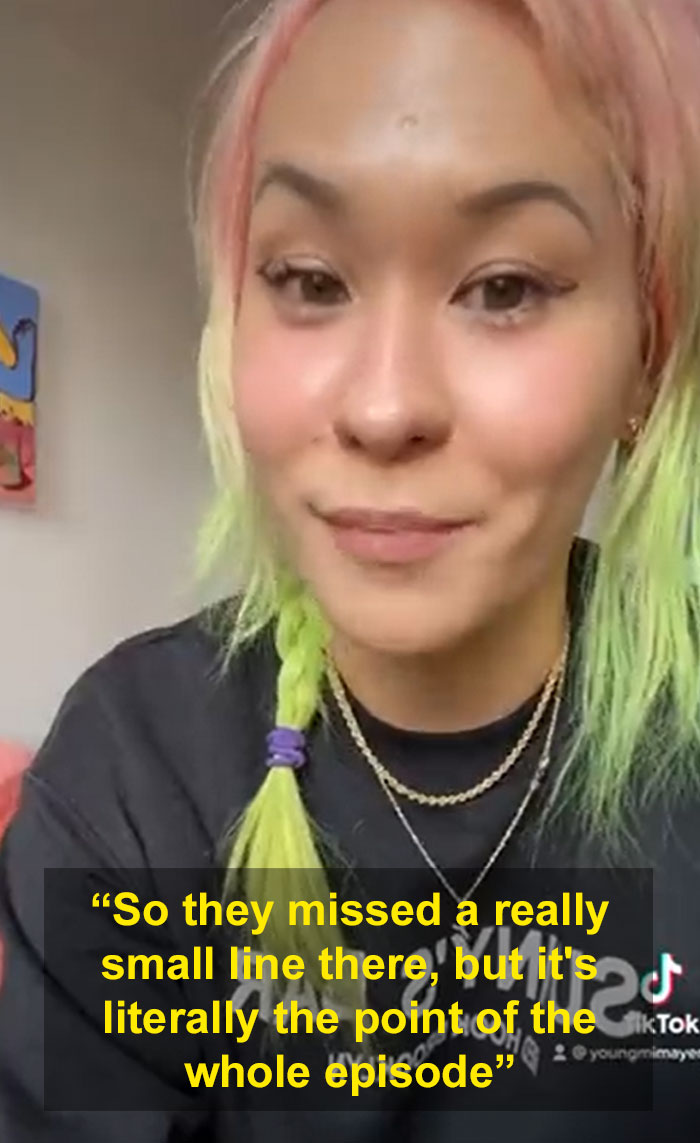
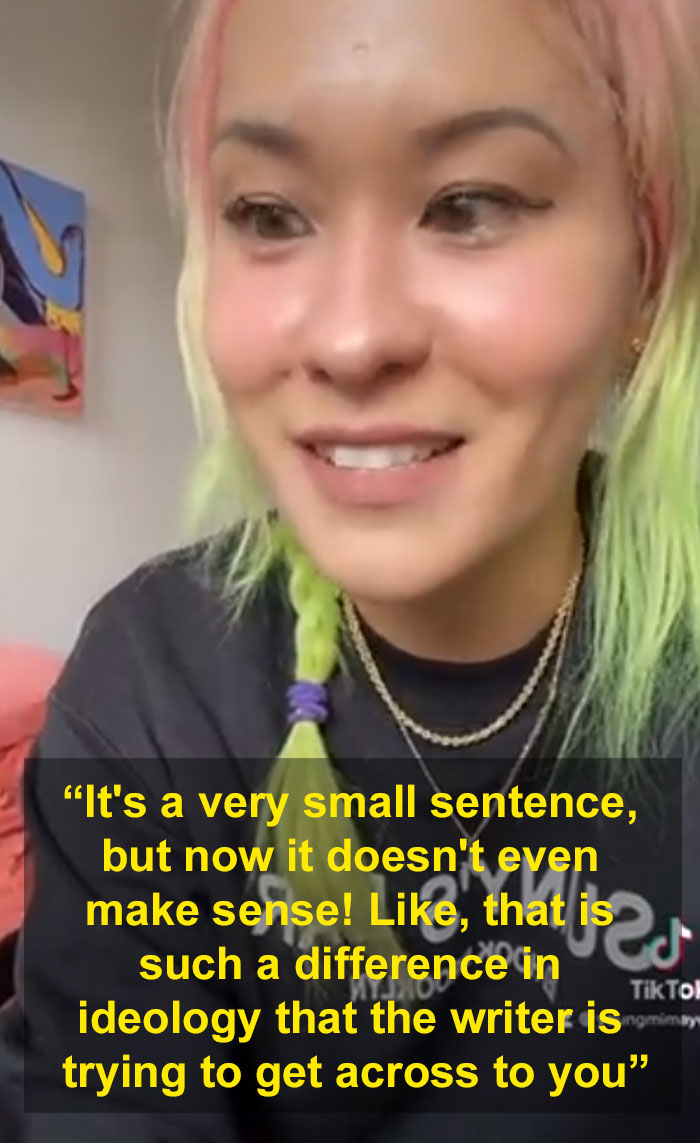
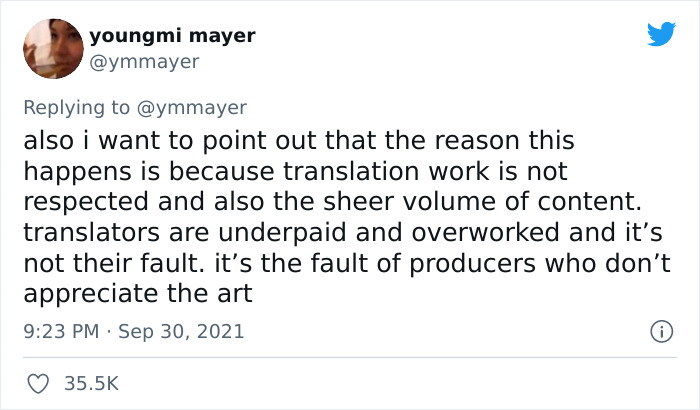
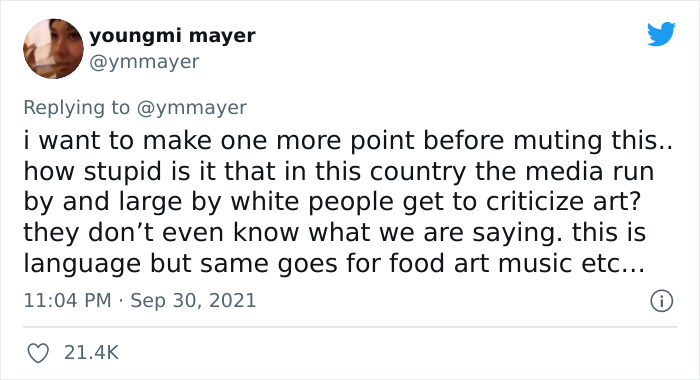

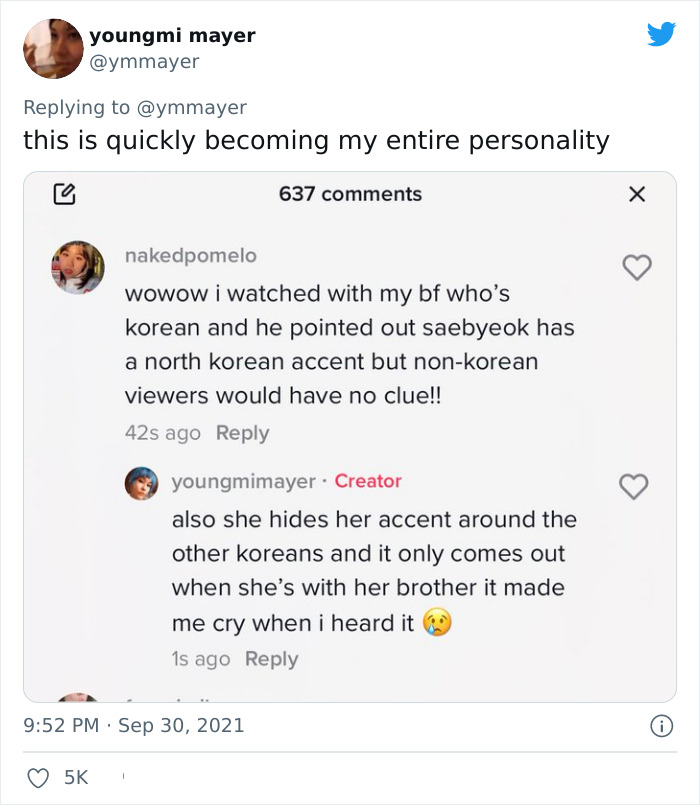
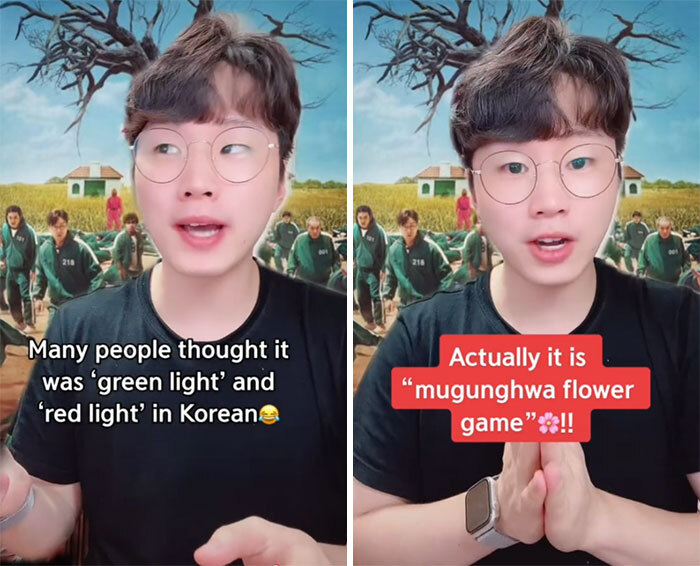
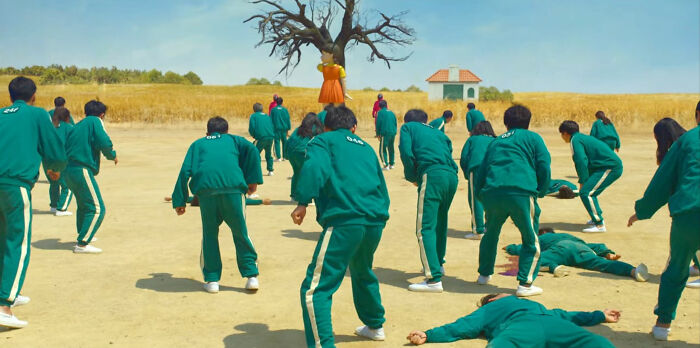
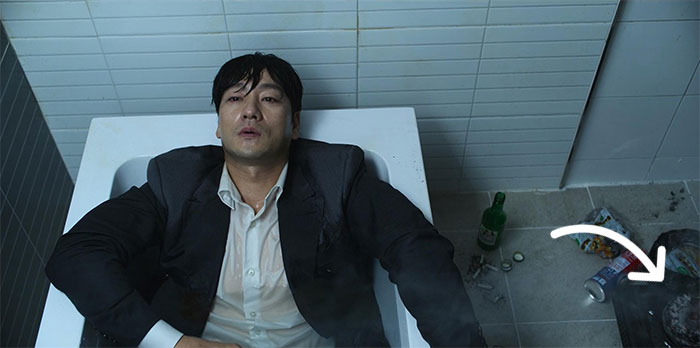
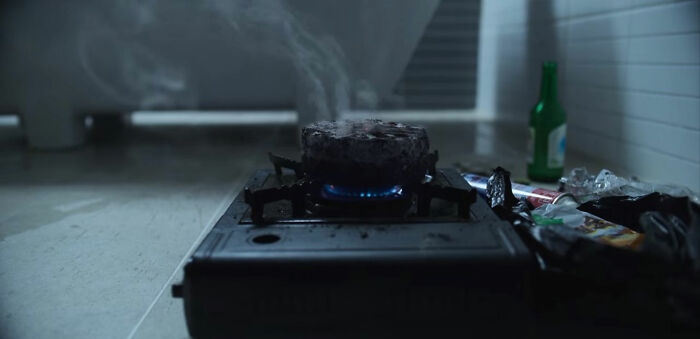
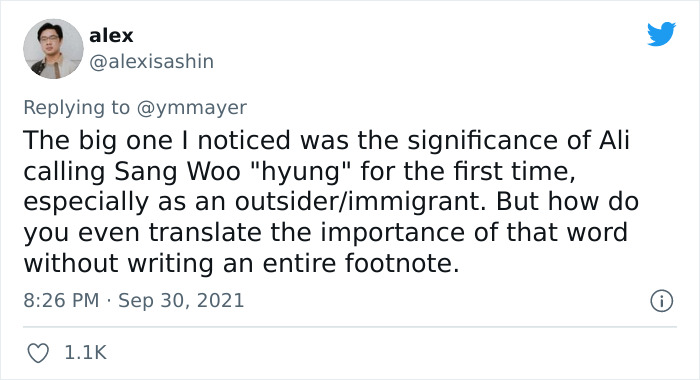
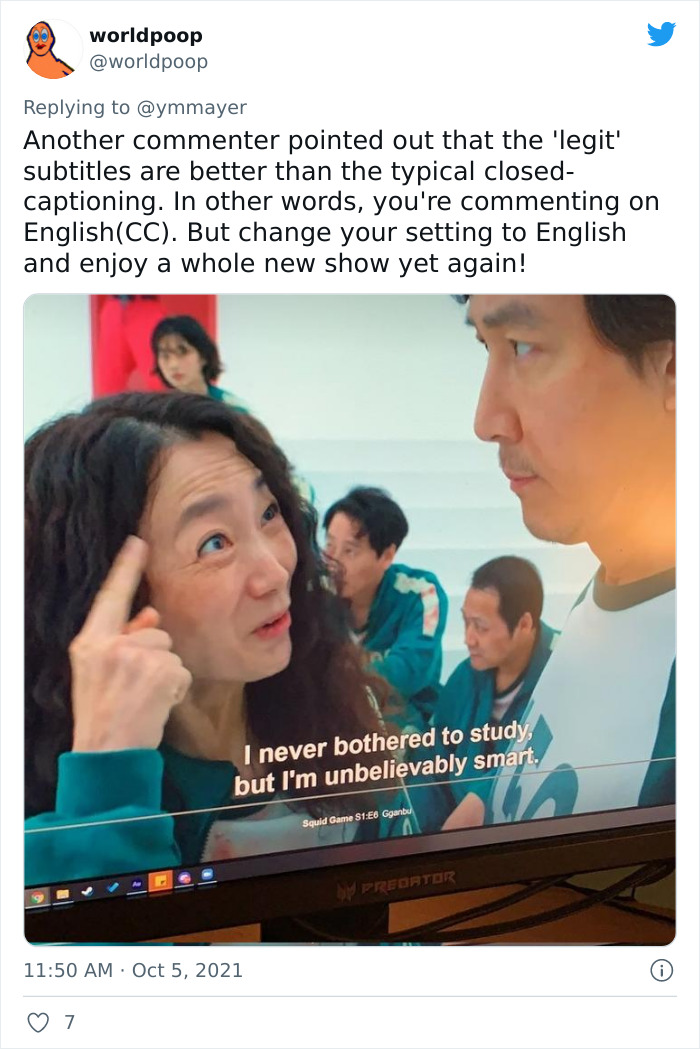

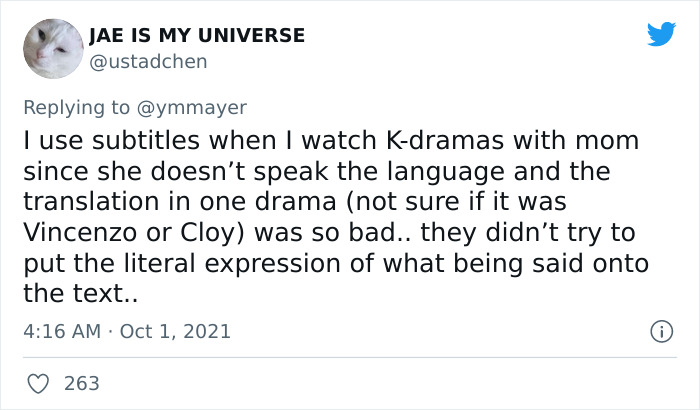
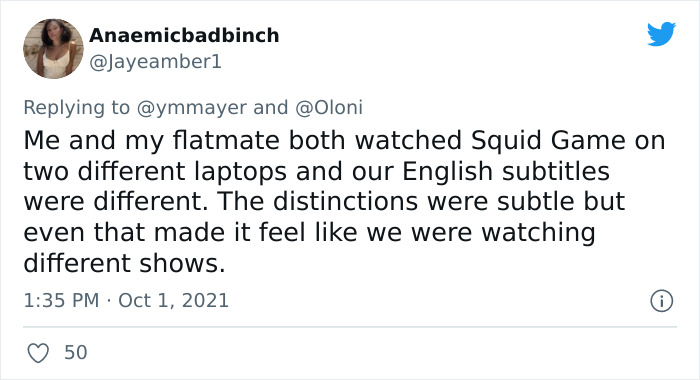
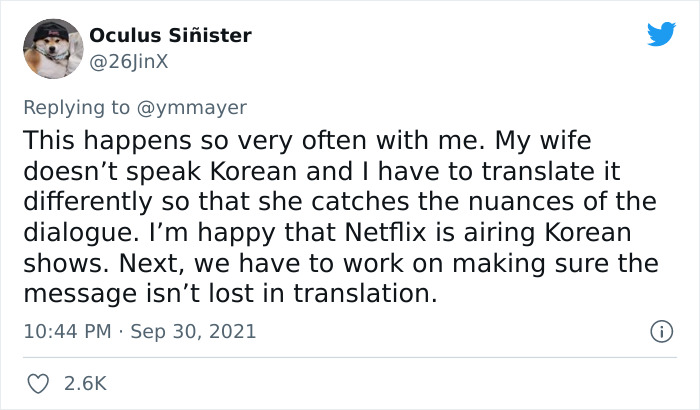
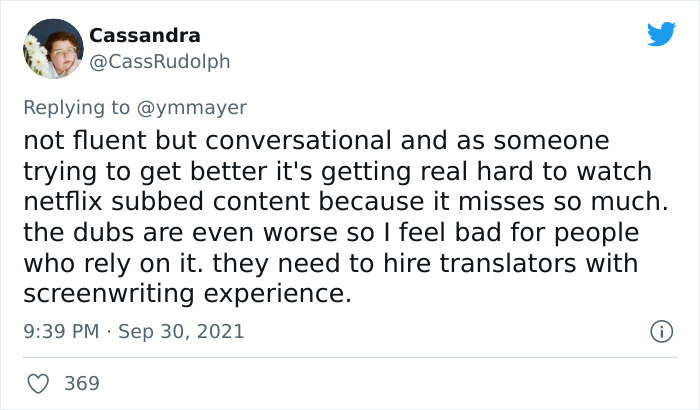
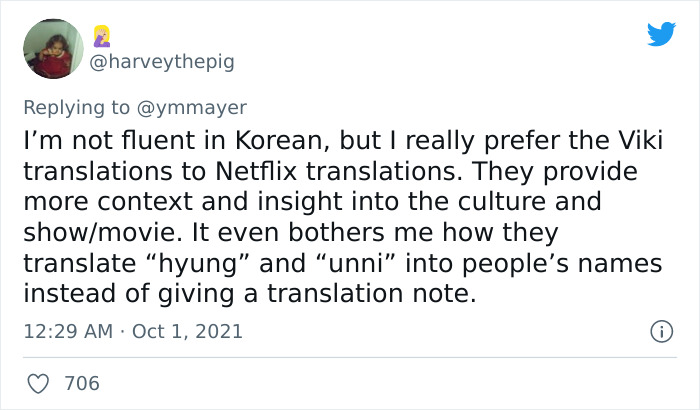










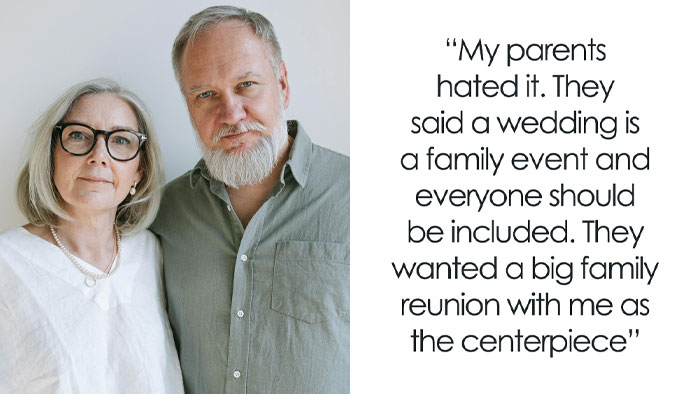


























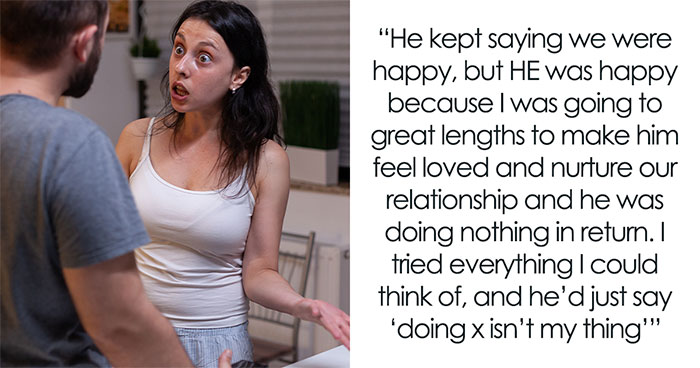






102
68